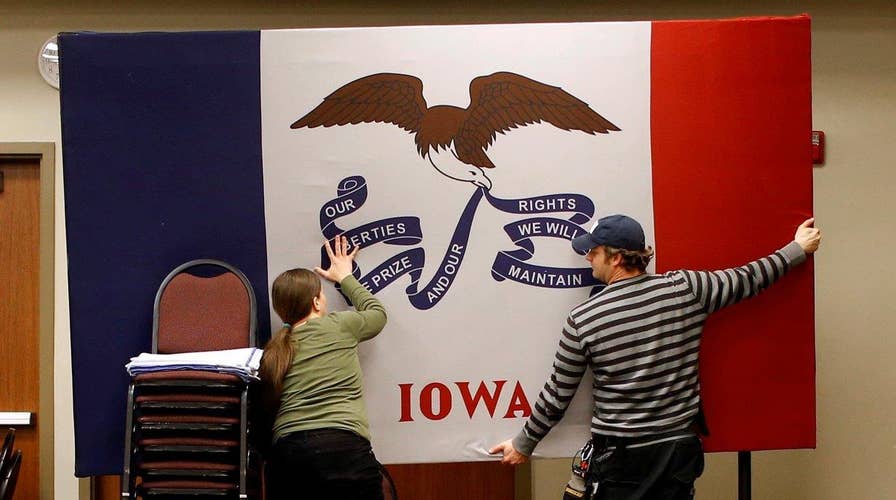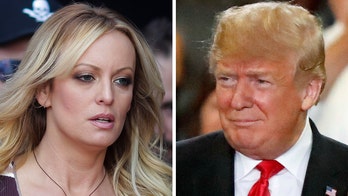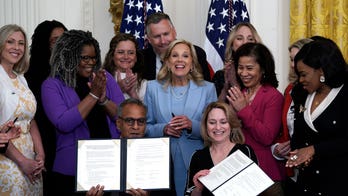GOP works to avoid 2012 error declaring wrong winner in Iowa
John Roberts reports from Des Moines
DES MOINES, Iowa – It was the worst of all scenarios.
In 2012, then-Iowa Republican Party Chairman Matt Strawn came out to announce that Mitt Romney had won the Iowa caucuses by a razor-thin margin of eight votes. Sixteen days later, Strawn was forced to rescind his proclamation and announce that the official results gave Rick Santorum the victory.
It was a black eye for Iowa, which every four years must defend its first-in-the-nation status.
Party leaders are now deploying new technologies and aiming for a much smoother process this time around -- and the stakes are even higher, considering the crowded field and the fact that Iowa already is under scrutiny.
“We take this honor very seriously and every four years, we have to show the rest of this country that Iowa is up to the task,” Jeff Kaufmann, the current Iowa Republican chairman, told Fox News.
To this day, Santorum argues that had he been declared the winner on caucus night, and not as a footnote two weeks later, his trajectory through the rest of the primary season may have been quite different. With such a crowded field this year, a similar mistake could alter history, said Craig Robinson, who coordinated the Republican caucuses in 2008.
“New Hampshire is critically important for someone like Marco Rubio, so where these guys finish [in Iowa] matters greatly so they need to get the result correct on the first try,“ Robinson told Fox News.
The caucus process is different from a primary, where voters punch a ballot at a polling station run by the state.
The caucuses are a grassroots process, run by the parties and volunteers. Caucus sites can include anywhere from a couple dozen participants to a couple hundred. Everything has to be done by hand, so the potential for things to go awry is fairly high. In 2012, one precinct leader in Clinton County famously went home after the caucus without reporting the results. She didn’t discover her error until party officials pounded on her door in the middle of the night with the news media in tow.
Kaufmann promises this year will be different than 2012.
“It was obviously a mistake and this administration in the Republican Party in Iowa, we learn from our mistakes.”
At the center of this year’s caucus revisions is a new smartphone app – designed by Microsoft – that will allow leaders in each of Iowa’s 1,681 precincts to report results in almost real-time. The app feeds back to party headquarters, where it is broadcast to the nation. By logging on to the party’s website, anyone can examine the results statewide, county-by-county or precinct-by-precinct – even checking a candidate’s position in all 99 counties.
“We are on the edge of technology in terms of efficiency, in terms of credibility, in terms of accuracy,” Kaufmann told Fox News.
Party officials have conducted more than 200 field training sessions with the new app so far. By Feb. 1 – caucus night – they will have held more than 300.
Myrna Beeber, the Guthrie County GOP chairwoman, is confident the mistakes of 2012 will be a faded memory by the time this year’s caucus is over.
“I can’t believe how organized they are and that makes me organized in order for me to do the job they tell me to do,” Beeber told Fox News.
“We as party members want to have it perfectly accurate this time. We don’t want that -- two black eyes might cause us not to be first in the nation,” said David Van Ahn, who will be in charge of reporting results for a precinct in Guthrie County.
The results of caucus night four years ago were egg on the face of the party – to be sure. But what happened seven months later was downright embarrassing. Because Iowa Republicans didn’t ‘bind’ their delegates to a specific candidate, Ron Paul supporters were able to game the system. When the roll was called at the national convention in Tampa, Iowa had a third winner -- 22 of Iowa’s 28 delegates went for Ron Paul.
Kaufmann and the rest of the party establishment were incensed. “I’ll be honest, from my perspective what happened was unconscionable. It is not going to happen again,” Kaufmann told Fox News.
To guard against a repeat, this year delegates will be bound to a specific candidate, and then reapportioned by a strict formula as candidates drop out of the race. By the time the Cleveland convention rolls around, the Iowa GOP hopes to have an orderly group of delegates accurately reflecting Iowa’s preference.
But the possibility of a ‘brokered’ convention isn’t lost on officials here. There’s plenty of talk that the primary process won’t produce a clear nominee and it will be left to the convention to decide who will be the Republican standard-bearer.
That hasn’t happened for decades, and it may not happen this year either. But under the new Iowa rules, if the first roll call at the national convention doesn’t produce a nominee, Iowa’s delegates will be released to vote how they want.
And that could produce a free-for-all.





